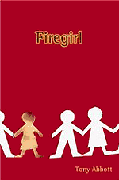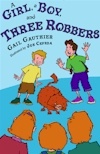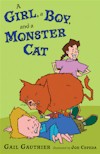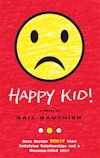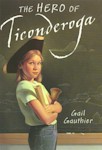How Come One Writer Shines And Another Doesn't?

Sometime ago, I met a writer who had just published her first book. I set out to read said book, really wanting to like it. I didn't. It started out with a trite situation about best friends separating when one friend was attracted to a new group of girls, leaving her old friend behind. Nothing about the writing elevated the book beyond that cliche. What I was reading was what I sometimes think of as just words on pages. I had to give up on it.
Last week I read All Alone in the Universe by Lynne Rae Perkins, which is also about a girl left behind when her best friend takes up with someone else. It is not just words on a page. It is a lovely book.
How do you explain why one writer can write something you want to read and another can't?
All Alone in the Universe is not just an "Oh, woe is me. My heart is broken" story. It is the entire story of how Debbie either was cut out by her friend Maureen's new friend or merely felt cut out. (I think the fact that Perkins raises a question in our mind about just what was going on gives the book more sophistication.) It is the entire story of how Debbie either was cut out by her friend Maureen's new friend or merely felt cut out and how she lived through that experience and came out the other side.
She didn't come out the other side better than ever. She didn't come out victorious. She just came out the other side. That's pretty much what happens to all of us when we have a bad experience. Some day we get over it. We're not necessarily better people or happier as a result of what happened to us. We're just over it.
Perkins is the author of Criss Cross, a Newbery winner I loved and Pictures from Our Vacation, a picture book of which I am very fond. All Alone in the Universe is an earlier work. Personally, I think it's not quite as accomplished. The wealthy woman and her employee don't seem necessary to me. And I didn't get the long passage at the end of the book in which the adults in the neighborhood get together at Christmas time and talk about doing things for others. I wasn't sure what that had to do with Debbie and her story. But those stumbles aren't enough to ruin the book, by any means.
Like Criss Cross, All Alone in the Universe isn't specific about its setting, but details suggest the events take place in the sixties, just as events suggest the same time period for Criss Cross. Perkins is just a master at evoking the decade of her childhood. (If Wikipedia is to be believed regarding her birthdate.) Whether child readers appreciate her sense of place in terms of time, I don't know. But as far as Universe is concerned, many children will appreciate all too well the suffering of its main character.
Labels: literary fiction, Reader response
